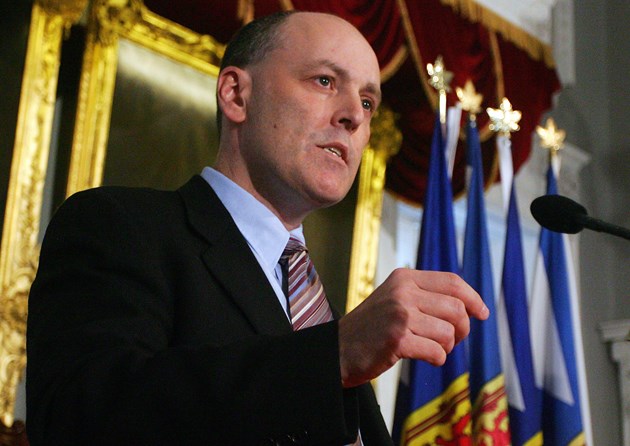By MARK COFFIN with LOUISE COCKRAM
The period just after first being elected is one of the most important times in an MLA’s career. It’s when MLAs decide what to focus on. In some cases, they fail to decide what to focus on.
Howard Epstein, a former NDP MLA for the riding of Halifax Chebucto, framed the dilemma facing new MLAs well:
“In psychology, there is a concept known as the idea of signal and the idea of noise,” Epstein said. “Signal, of course, is what you want to focus on, and noise is all the distractions that are out there. This is a concept that has a lot of application in psychology, but it also has application in politics.
“In politics, there’s always something happening. There’s always an issue of some kind. There’s the process, there’s the details of it; if you’re new, there’s the whole matter of learning how government works. There is no shortage of things — there are going to be distractions that are the noise.”
There are two signals — or focus points — that MLAs tend to gravitate toward (or away from) in Nova Scotia politics.
On the one hand, each MLA represents a part of the province that nobody else can represent. On the other hand, MLAs are the only people in the province who can make laws for the province as a whole. Some MLAs approached these two realities as a balancing act, but most favoured their role as constituency champions over their role as lawmakers.
When we asked Charlie Parker, one of Epstein’s caucus colleagues, about how he learned to do the work of a lawmaker, his answer was revealing about which of these signals was more attractive to MLAs.
“The job is multi-faceted and one of the main responsibilities is, you know, looking after your constituents and all their various issues and concerns,” said Parker. “There’s no formal training (that says) ‘Here’s the role of an MLA. Here’s what you need to do.’
“But you soon learn because when somebody calls you and says, you know, ‘I’ve got no money left, my rent is overdue, and I need heat, you know, or food for my children,’ you soon find the right contact, you know, within the Department of Social Services, or if it’s a road issue, you soon find out who the local foreman is or the manager for the local Department of Transportation or whatever.”
Parker’s answer to this question could easily represent the focus of most of the MLAs we spoke with. The business of the legislature was primarily handled by the party leadership, with the exception of members’ statements, where MLAs used their time to celebrate the people and groups in their constituency, or the odd interrogation in question period, where MLAs air the grievances of people in their communities.
“Usually, the thing that you want the most is to get re-elected,” former NDP finance minister Graham Steele told us. “Your voters — you learn very quickly — your voters have no idea what is going on in the legislature. And you can work your pretty little brains out to be the best legislator ever, and the people at home don’t care.”
MLAs had an expression to remind one another of what work was important, according to Steele: “There’s no votes in Halifax.” Halifax meant Province House.
Steele represented a Halifax constituency and made his work in the legislature a higher priority than most, but he knew that’s not where his support came from around election time.
According to Steele, there was something else that made it logical for MLAs to prioritize the work in their constituencies over their work in the legislature.
“It often takes people years to figure out how the legislature works and why it works the way it does. Most MLAs, though, are not in their comfort zone dealing with that stuff. They’re in their comfort zone back home in the constituency.”
His tone isn’t entirely critical, though. He recognized that, just like other MLAs, he, too, was operating in his comfort zone.
“I’m an odd enough duck as a politician that my comfort zone was spending more time in the legislature,” he said. “But I also knew that that’s not where the votes are — you know, apart from raising my public profile.”
But regardless of which element of the job an MLA was drawn to, there was no getting around engaging with the public on a regular basis.
“You don’t learn how to be an MLA,” said Tim Olive, a former Progressive Conservative MLA from Dartmouth. “You learn how to be a people person. If you’re a good people person, it’s easier to be an MLA — if you’re approachable, if you learn to listen without talking before the people are finishing telling you what they want to tell you.”
“I don’t care what it is — I mean, if you worked in a store and you had continual interaction with the public, then you’ve already begun the process of being an MLA,” said Olive. “You learn all that through your public participation, and if you don’t have any of that, I would think it would be extremely difficult walking in as an MLA.”
Want the full story? This article is an adapted excerpt from the weekly podcast. Listen to this episode, “How do you learn to be an MLA?”, and subscribe to the podcast here.





